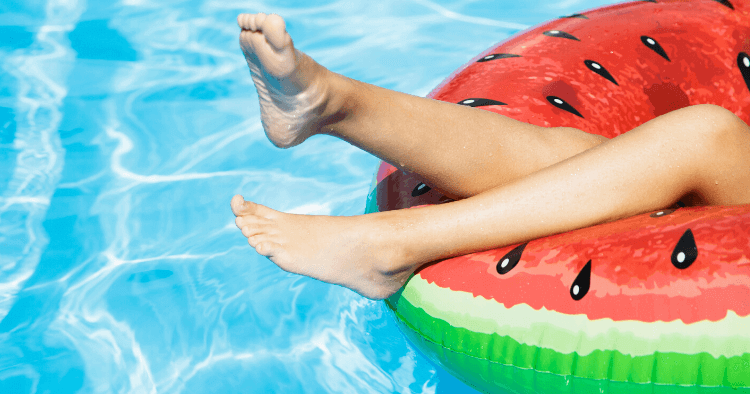
Kids love playing in the water, and I’m sure that there most favorite season is summer as they can play all they want in the water. But then as a parent, we are worried if the water they are swimming at is safe, especially if its a foreign place. How safe is pool water?
In this article, I will tackle all the things you want to know about how safe pool water is. You might want to know if this could be dangerous to your health and what are the ways to keep your pool water safe to swim at.
Water is susceptible to germs, especially if it is stagnant water, this is why a swimming pool is dangerous if it is not maintained correctly. It can contain a lot of germs, viruses, and bacteria that will cause health problems to whoever comes in contact with it.
There are ways that you can regularly check your swimming pool to make sure the water is safe for swimming.
You need to check every day if the pool is:
Can see the bottom of the pool
Germs are everywhere, and there are a lot of things where dirt and other swimming pools contaminants. The first primary source of pollutants are people swimming in the pool as they can carry different germs and viruses since they are in direct contact with water while swimming.
The second source of contaminants is animals like dogs or any pets that came waddling and paddling in your pool. Like humans, they carry all sorts of germs and viruses that can be transferred and can cause sickness. Aside from your pets, there are instances wherein in different insects or reptiles can pay a visit to your pool, and they might occasionally drown. When this happens, all sorts of bacteria is formed if not cleaned and treated well.
The contaminant can also be found from different debris surrounding your pools such as the
dirt, leaves, and dust that will affect your pool condition.
With the different contaminants in your pool, you might be thinking about what I should do to keep it clean and safe for my family. Don’t you worry because there are five ways to keep your water quality prestine.
Filtration is used to remove different particles or debris from your pool. Your pool needs a pool pump to do it, and it depends on the size of your pool how long will it take. However, filtration can’t clean your pool alone, as there will still be different microbes present in the water. This method works best with other pool cleaning ways.
Chlorine is the main ingredient used in chlorinating pools. This chemical helps disinfects the water and remove germs that linger in your pool water. There are different kinds of chlorines that you can use in your pool.
In using chlorine, you will need a chlorine stabilizer to extend the life of it. If you have a longer filtration cycle, you only need less chlorine for your pool, but when you use more chlorine, you need a shorter filtration cycle.
There are a lot of factors when it comes to your chlorine requirements. It will depend on your filter system, water level and temperature, debris, and swimmers in the pool.
Alkaline is part of the chemical in your pool water. It is why the total alkalinity of your is important. If the total is too low, its pH balance will be unstable. If the pH balance isn’t stable, it will deteriorate your pool and will cause some damage. It is a must to make sure that the pH level is balanced when it comes to adjusting your pool’s total alkalinity.
Calcium hardness is the amount of mineral calcium that is dissolved in water. If the calcium levels are low, it can cause damage to the pool, and if it is too high, it will scale the surfaces and equipment in your pool.
pH Level of the pool can indicate if it is acidic or the total of alkaline. The neutral level of pH should be 7 because it means it is neutral. If it goes beyond 7 it means its alkaline, and if it is below 7 it means its acidity. A pool should have a pH level of 7 to 7.6. If it becomes higher, it will cause rashes, but if the pH levels us lower, it can sting the eyes of the swimmer. You always need to check the pH level of your pool.
Safety is always the priority, and that is why swimming pools owners are finding ways how to keep their water safe and clean for the people that will use it. Germs and viruses is not a thing that you could shoo away, so knowing proper swimming pool maintenance, such as making your pool water clean, is essential for everyone.
Maintaining a pool and keeping it clean and healthy isn’t an easy task. It needs total care and can cost you money. Yes, there are radicals out there that can affect your pool water and can endanger your health, but there are solutions and ways to solve swimming pool problems. All you need to do is to follow simple steps. Investing and knowing a lot of information on how to make your pool water safe and clean is very worth it.